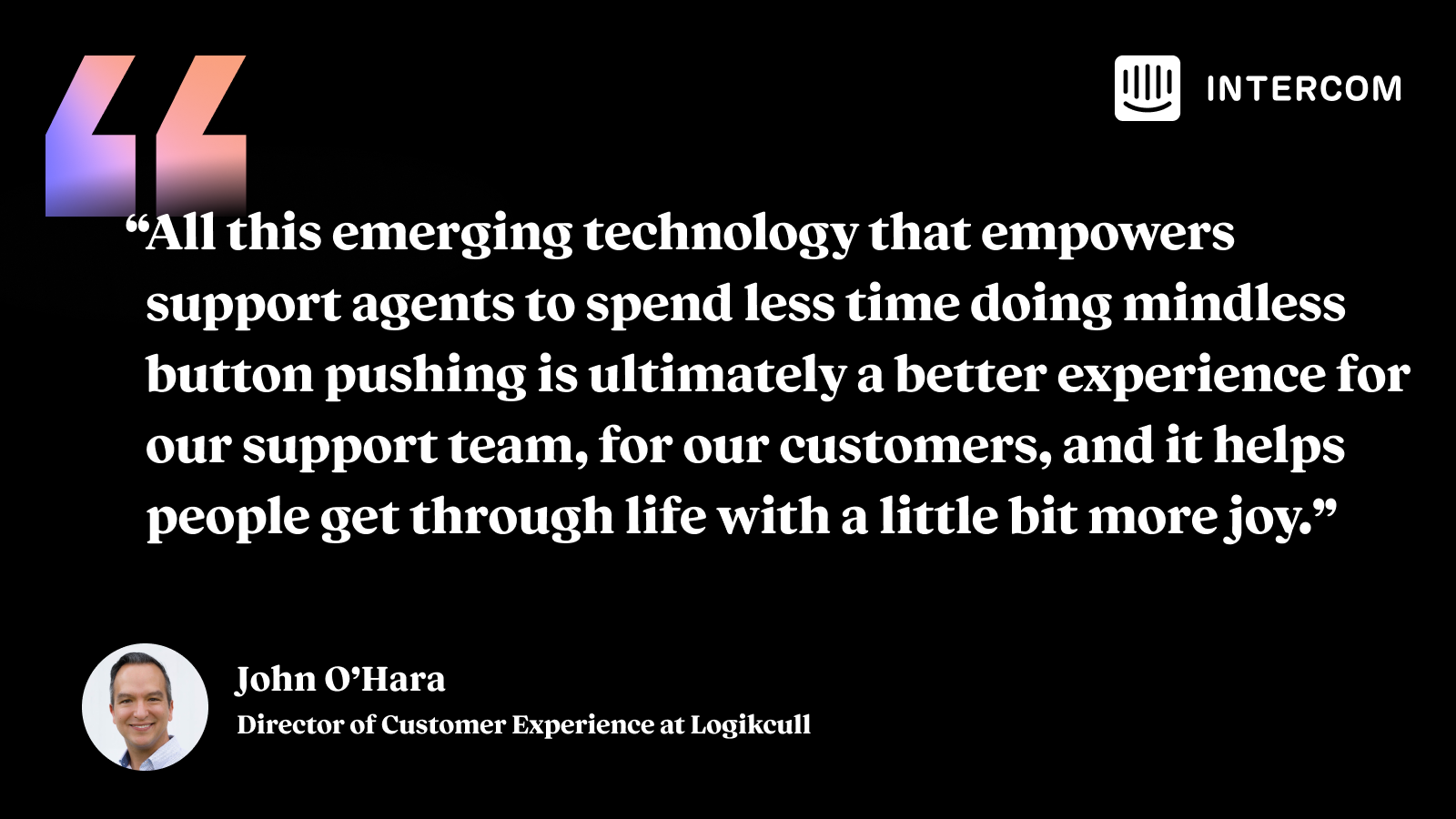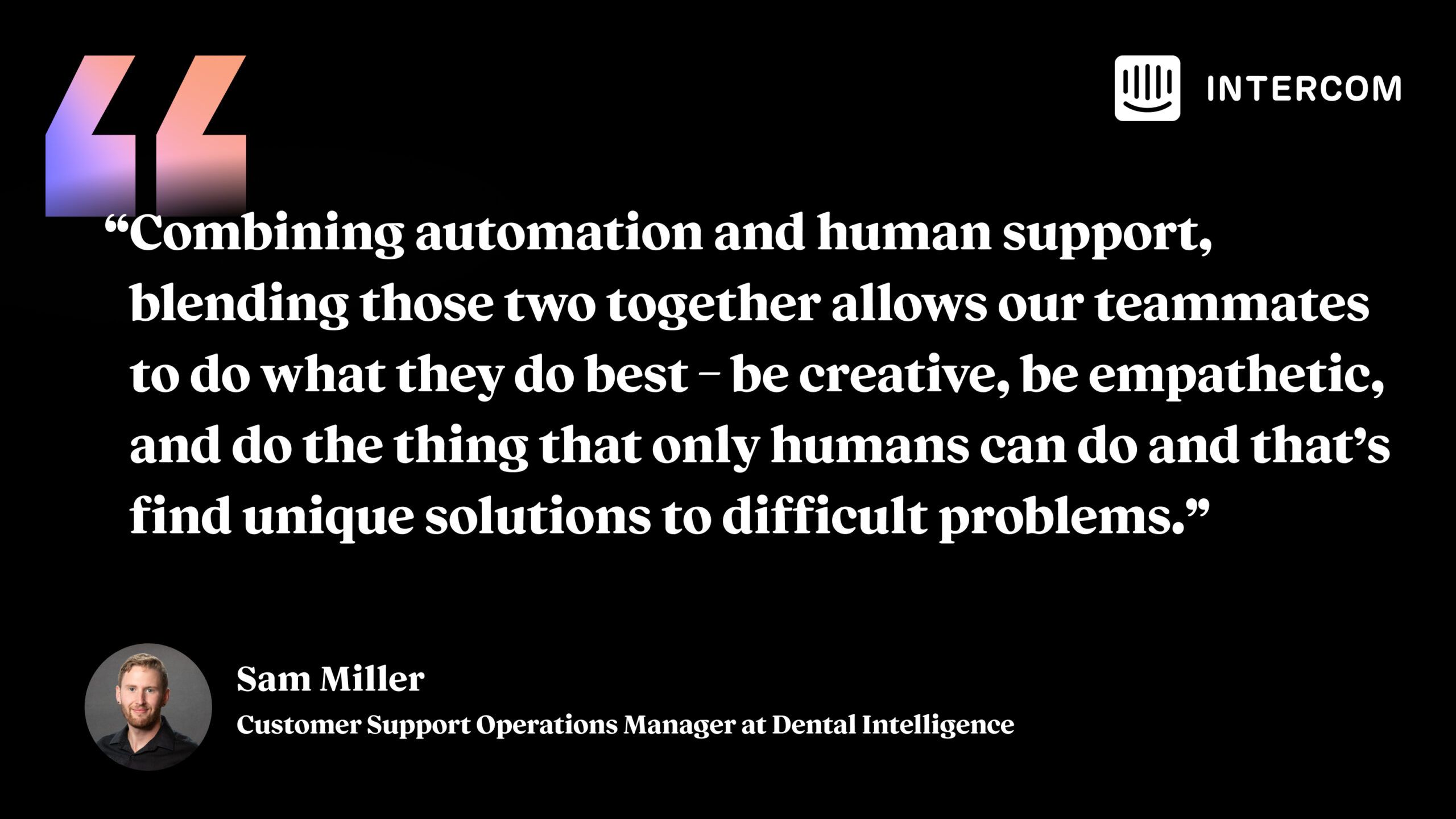
Bots 🤖 and brains 🧠: The winning combination for customer service 🤩
There’s a big question being asked in the customer service industry right now: what will the future of support look like in the age of AI?
The reality is that it will require a combination of automation and humans – or as we like to say, “bots and brains.”
AI and automation have presented huge opportunities for customer service teams in terms of scalability, time savings, faster resolutions and response times, and improved customer experiences. But the key to making this technology successful is – you guessed it – the humans in customer service. AI and automation will become support teams’ co-pilots, enabling them to provide fast, efficient support to their customers, and freeing up their team to explore new areas of focus that drive value for their businesses.
The role of automation in customer service
Automation technology has a distinct role to play in customer service. It enables support teams to take advantage of significant efficiency gains, contributes to improved customer experiences, and creates opportunities for more career fulfillment for support reps.
💡 AI and automation are helpful for:
- Eliminating manual, repetitive work for support reps.
- Automatically routing customers to the right team or person to help them with their issue, supercharging the potential for VIP or white-glove support.
- Assigning and categorizing support conversations to save valuable time and speed up customer service workflows.
- Empowering customers to self-serve answers to their own questions, improving the customer experience.
We asked a number of customer service leaders to share their thoughts on the role of automation in customer service, what AI is likely to change, and the significant benefits that support teams stand to enjoy from it. Constantina Samara, Head of Support at Synthesia, pointed out that automation is not going to be able to tackle every issue that customers require assistance with.
![“Rather than focusing on really high volumes, [support reps] can now spend that time walking customers through the challenges that automation can’t resolve.” Constantina Samara, Head of Support at Synthesia.](https://blog.intercomassets.com/blog/wp-content/uploads/2023/06/Constantina-Samara_-Bots-and-brains-scaled.jpg.optimal.jpg)
Similarly, John O’Hara, Director of Customer Experience at Logikcull, echoed Constantina’s point about how support reps will be freed from a lot of the repetitive work that can be so tedious.

Humans will be the key to success
Many of us encounter automation on a daily basis – self-checkout kiosks at supermarkets, self-serve luggage check-in machines at airports, nifty time-saving formulas in spreadsheets (thank you, automation!), and many others that we’ve become accustomed to over time. What we don’t always see is the human input and creativity that powers and drives improvements to this technology behind the scenes.
“The addition of AI in customer service will ultimately result in the role of ‘customer support rep’ becoming more technically focused, with the humans of support orchestrating the AI-powered chatbots and workflows that we’ll all become familiar with”
Human support reps will continue to play a vital role in customer service, even if the “customer support rep” role might look a little different in the future. The addition of AI in customer service will ultimately result in the role of “customer support rep” becoming more technically focused, with the humans of support orchestrating the AI-powered chatbots and workflows that we’ll all become familiar with. Not only that, but these technological advancements will also create new opportunities for support teams – such as new roles like “chatbot developer” and “chatbot analyst.”

With the efficiency gains afforded by AI and automation, support teams will have more time to dedicate to solving complex customer problems and find new and exciting ways to create value for their businesses. As Sam Miller, Customer Support Operations Manager at Dental Intelligence, perfectly puts it, it allows support reps to “do what they do best – be creative, be empathetic, and do the thing that only humans can do and that’s find unique solutions to difficult problems.”
Bots + brains = great customer service
We’ve entered a new era of customer service, where automation and humans will need to work together to meet – and exceed – customers’ expectations of support. Forward-thinking leaders are already adapting their strategies to incorporate AI, with our recent research showing that 67% of support leaders in North America are planning to invest more in AI in the year ahead.
By leveraging the winning combination of bots and brains, support teams will be empowered to create next-level customer experiences, have an outsized impact, and gain a significant competitive advantage over those that don’t.







